* who is Harry Dresden? He is a character created by Jim Butcher and the main character in the Dresden Files series. He is a magician for hire in modern day Chicago. The series is addictive (and if you like audio books, this series is wonderfully narrated by James Marsters). The magic feels "real." The other beings and other characters are so interesting. If you are looking for a new series to sink your teeth into, I highly recommend this one.
This LINK will take you to a page with all the books in the series.
In tarot we sometimes talk about the cosmic egg, the container that held all that became the world after it hatched. It seems more intuitive to associate an egg with a Queen rather than a King, or at least with a passive suit rather than Swords.
When I see things like this that confuse me, I don't assume the creator is wrong or made a mistake. I try to push myself to figure out what this image is saying. When I think of the cosmic egg, creation, Swords, and Kings, the phrase "thoughts become things, so pick good ones" comes to mind. Swords are about thought and that phrase reminds us of the power and importance of the thoughts we entertain. Kings have authority but they also have responsibility. It is important for them to decide wisely for the good their people. Maybe this is why the 2 of Swords woman is sitting in an egg chair. She has to make a decision and that decision is going to have ramifications. It will, in essence, create a world.
1 Comment
The images for this deck are oil paintings. There is a depth and richness to oil painting that is hard to capture in other mediums. It is also really hard to find an oil painter willing to do a deck because oil painting is incredibly time consuming. When I heard about this one, I couldn't wait to get my hands on it.
In addition to the images being just flat out cool, the deck itself is far more than I expected. Most English speaking tarot buyers want a companion book that explains all the symbols and what the designer and/or artist intended the images to mean. European tarot buyers seem content to view the cards as they view art...largely without explanation but relying on their own interpretation. This deck's little booklet does not explain the symbols in this deck but instead provides a really interesting argument for NOT knowing that the designer intended. "From the beginning, the tarot was meant to be a language of symbols. We we read words, we access a part of our brains that is orderly, logical, methodical.... Tarot works the other way round. Rather than reading words on a page, we read images on cards, and what we read there opens a different door to our psyche--a mystical door.... The Mystical Tarot puts traditional tarot imagery through a byzantine filter, twists and turns it, adding layers of opulence and illusion. Experienced tarot readers are challenged to look again at the cards they know well. Beginners are offered a feast for the eyes and the imagination to start their journey." Because I am having so much fun finding cool connections in this deck, I thought I'd share at least one. If you find anything interesting, let me know! Numbers, Geometry, Thrones, and Interesting Groupings I've seen the Empress, Emperor, and Hierophant grouped together. Most interestingly and creatively in the Initiatory Tarot of the Golden Dawn (to learn more about this deck, click this link):
The Mystical Tarot, however, groups the High Priestess, the Empress, the Emperor, and the Hierophant. This group has several possible subgroups:
The two feminine cards The two masculine cards The two spiritual leaders (High Priestess and Hierophant) The two secular leaders (Empress and Emperor) The thing that brought this to my attention (as mentioned, there is no discussion of symbols in the booklet) were the triangle on top of the Empress's throne. She is numbered III and a triangle has three sides. The Emperor's throne has a square and he is numbered IV. The High Priestess sits between two pillars and is numbered II. The Hierophant's throne (if you include him) features five eyes and he is numbered V. The High Priestess has a moon at the top of her throne which contrasts interestingly with the eye atop the Hierophant's. The moon reminds me of internal reflection and hidden things while the eye externally focused and about things that can be seen. The two spiritual leaders gaze straight ahead and slightly down (toward their tasks at hand: reading and teaching). They also both have oceans and mountains behind them. The two secular leaders are not looking straight on. The have more cultivated landscapes behind them. I find these kinds of connections within a deck really satisfying. If there is interest, I might post more of the interesting treasures I've found in this deck. Let me know what you think.
May your mind always have something interesting to nourish it.
May your soul always have something beautiful to sustain it. May your spirit always have something amazing to inspire it. 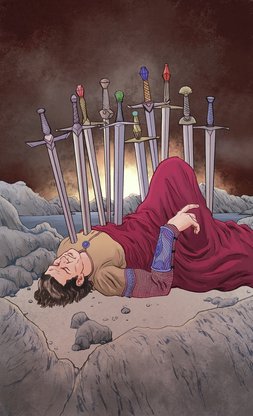 10 of Swords from Llewellyn's Classic Tarot by Eugene Smith 10 of Swords from Llewellyn's Classic Tarot by Eugene Smith Recently I heard the idea that we should look at hard times in our lives as allies because they help us to become the people we are meant to and want to be. I know it is common for us to sometimes advise people to “look on the bright side” or to consider that “every cloud has a silver lining,” but these platitudes are cold comfort and feel, well, just lame. They feel that way because we have a larger, more important idea about hard times that shapes our underlying understanding of the role that hardship and challenge play in our lives. In modern Christianity, at least in some denominations (particularly the megachurches and fundamentalists), there is the idea that if one lives in a way pleasing to God that one will prosper because God, being happy with you, will reward you with material comfort. This idea isn’t only embedded in Christianity. It is part of our New Age understanding of the world, too. We have ideas like “if you are on the right path, things will open up and be easy for you.” The Law of Attraction is another example. If only you believe strongly enough and be VERY careful of every word that comes out of your mouth, the Universe will reward you. And variations of that quote that I’ve seen attributed to various writers, “And, when you want something, all the universe conspires in helping you achieve it.” Somehow we’ve gotten it in our heads that having things go well and easy for us are rewards for and evidence of our good behavior and that when we experience hard times, we must have made some mistake and are experiencing a punishment. This kind of thinking is so dangerous. It leads to the “blaming the victim” notion that so many abuse victims have to deal with. It also can parallelize us from making any decision or taking any actions because every choice is fraught with concern over the outcome. The concern is not only the normal, what if this doesn’t pan out variety, but the deeper story we’ve attached to the outcome of our actions: all the world will know if we are good or bad. If we are successful, then clearly we are good people who are doing “life” right. If we suffer setbacks and hard times and failures, then we must have done something wrong, something more deeply and fundamentally wrong than just making a mistake. We tell ourselves terrible lies like (or just as bad, we believe these things of others): We expressed a negative thought and therefore the Universe rained tribulations on us. We didn’t properly follow our bliss, therefore we are living a pale, sad life. We sold out and kept our muggle job because we needed the insurance and don’t have the time or energy to pursue more high-minded pursuits. Maybe hard times aren't measures of how great or enlightened or lousy we are. Maybe hard times just sometimes happen to everyone. Maybe they are part of life because, well, because they are part of life. More philosophically and more importantly, maybe they are part of life because they are our allies who help us learn and grow. May you make allies of difficulties. May you never judge yourself by the outward appearance of your life. May you never compare yourself to others. An Important but Forgotten Lesson from the 5 of Pentacles 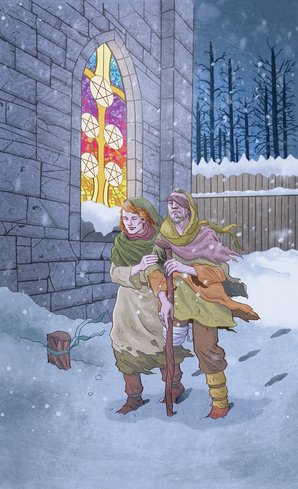 5 of Pentacles from the Llewellyn Classic Tarot by Eugene Smith 5 of Pentacles from the Llewellyn Classic Tarot by Eugene Smith As we know, the tarot has evolved over the centuries. Some of our most beloved cards don’t look like they did in the earliest decks. The Fool is no longer a madman whose bare butt is bitten by a dog. The Magician is no longer a con artist. The High Priestess is no longer a fake pope. Strength is no longer a strong man bludgeoning a lion with a club. Strangely, some cards that should have evolved to reflect our changing world and evolving consciousness have not. The Hierophant is a holdover from a time when the church was an important part of people’s lives. Judgement retains its “last judgment” qualities, a story from a mythology that no longer serves us (at least how it is currently interpreted). Many of our modern decks are inspired and shaped by the Rider Waite Smith Tarot, which was designed by Victorian Christian Mystics. The Christian symbolism meant something different to those people than it does to most modern tarot readers, yet instead of evolving the symbolism we change the meanings to something more negative, reflecting our issues and wounds. I can only imagine we haven’t brought these cards up to date with our current beliefs because we are still too wounded, still haven’t done our shadow work in these areas, and still aren’t ready to move on. Another card that has not evolved and consequently has taken on negative overtones is the 5 of Pentacles. It usually shows people in desperate physical need outside of a (usually) Christian church. One way we interpret this is to say that our religious institutions have let us down, have locked us out in the cold, and have failed in their job to take care of their people. In the past, churches did (and for current, active members still do) provide services and help for members. Churches were (and for some, still are) communities. When someone is a member of a community, they participate. If we are no longer active members of a church, it is presumptuous to expect that community to take care of us. A different lesson from the 5 of Pentacles might be the importance of community. If the old religions, the old communities no longer serve us, then perhaps our response should be to form new communities that do serve us. To be in community means to be involved, to accept the responsibilities of and commitment to something greater than ourselves. Some of us have shifted our idea of where responsibility for helping others comes from, namely, the government. However, besides voting (maybe), paying taxes, and perhaps protesting or posting indignant or angry comments, how involved with and committed to our government are we? Are we really part of our local governmental communities? If not, how realistic is it to expect that institution to take care of us in ways that matter to us most? When we create and are involved in community, we give of ourselves in many ways. We are present. We help identify problems. We help create solutions. We are active. We help. If we are invested in a community, we give and in turn can expect support and help in turn if we need it. Unfortunately, most organized religions don’t suit us (by us I mean people reading this blog, which probably means tarot readers and/or alternative thinkers). Unfortunately, most of us focus on national politics (particularly these days) where we often feel that we have little influence (and this certainly feels true, at least to me). Unfortunately, most of us are not involved in local politics because of whatever we prioritize over involvement in that form of community. To expect assistance from a community, one must be involved with that community. It would be a like a distant family member with whom you’ve never had a relationship, who was never involved in the family in general, and indeed denigrated the family, asking for help in an entitled way. There is so much talk of entitlement these days and we all suffer from it. We feel entitled to help from institutions/communities that we’ve never been truly involved with or are even actively denigrating. The 5 of Pentacles suggests that being involved in and committed to a community may have its price, but it also has benefits. Instead of railing against ineffective or inappropriate (for us) communities, the 5 of Pentacles invites us to form new communities that better reflect our ideals and gives us meaningful ways to serve, so that we may be served in our times of need. May you find community. If you cannot find it, may you make it. |
Categories
All
Archives
September 2023
|
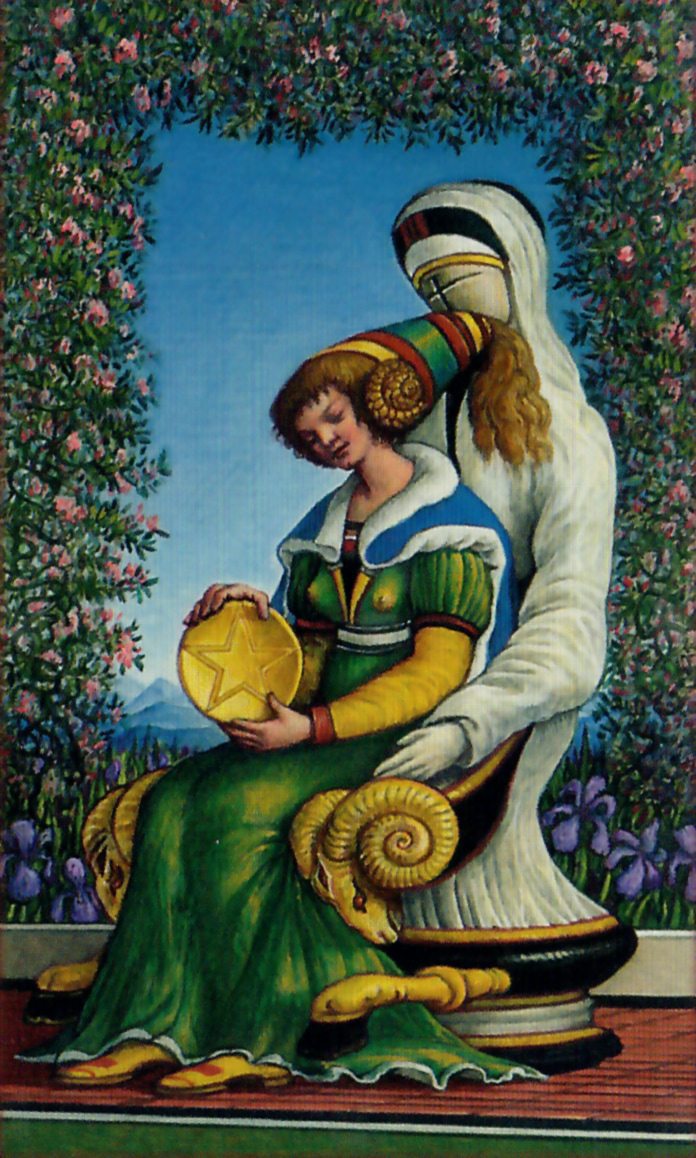
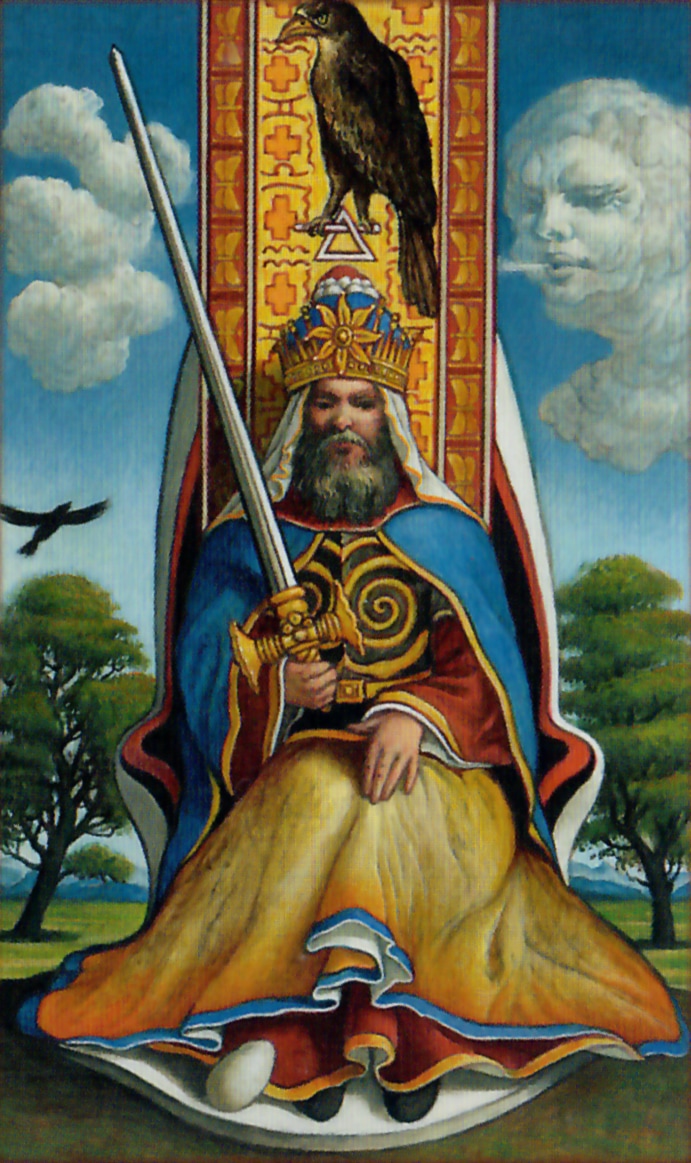

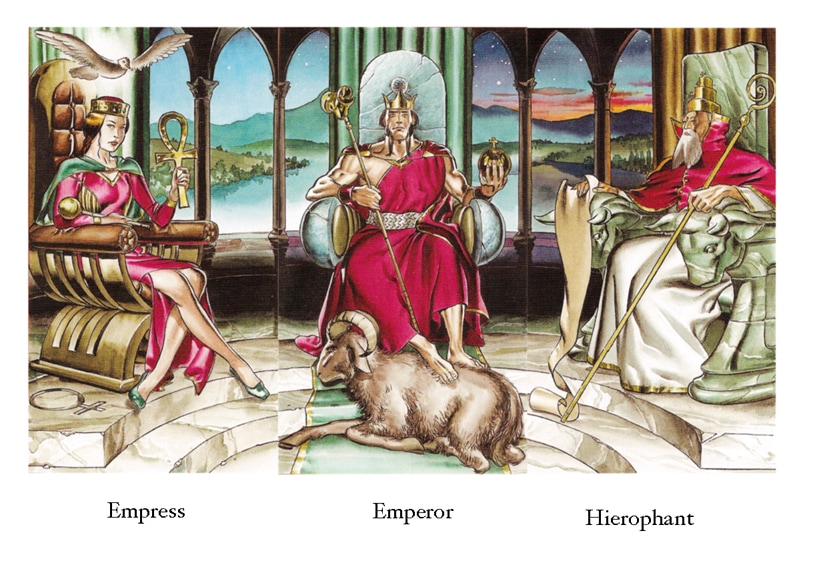
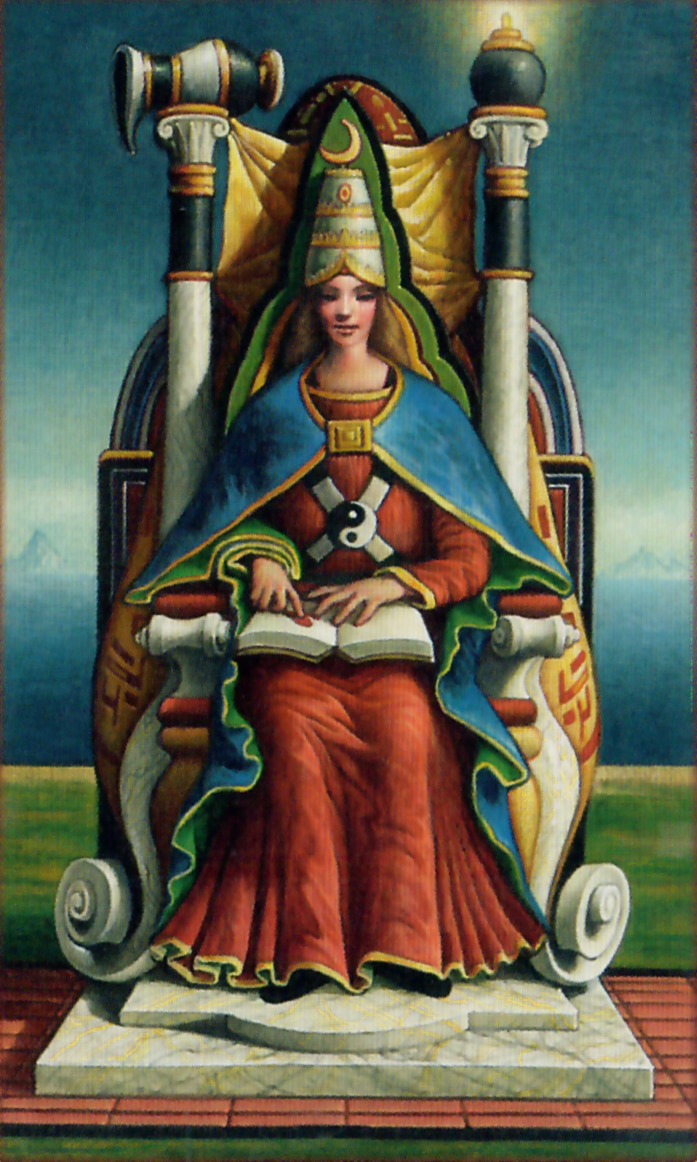
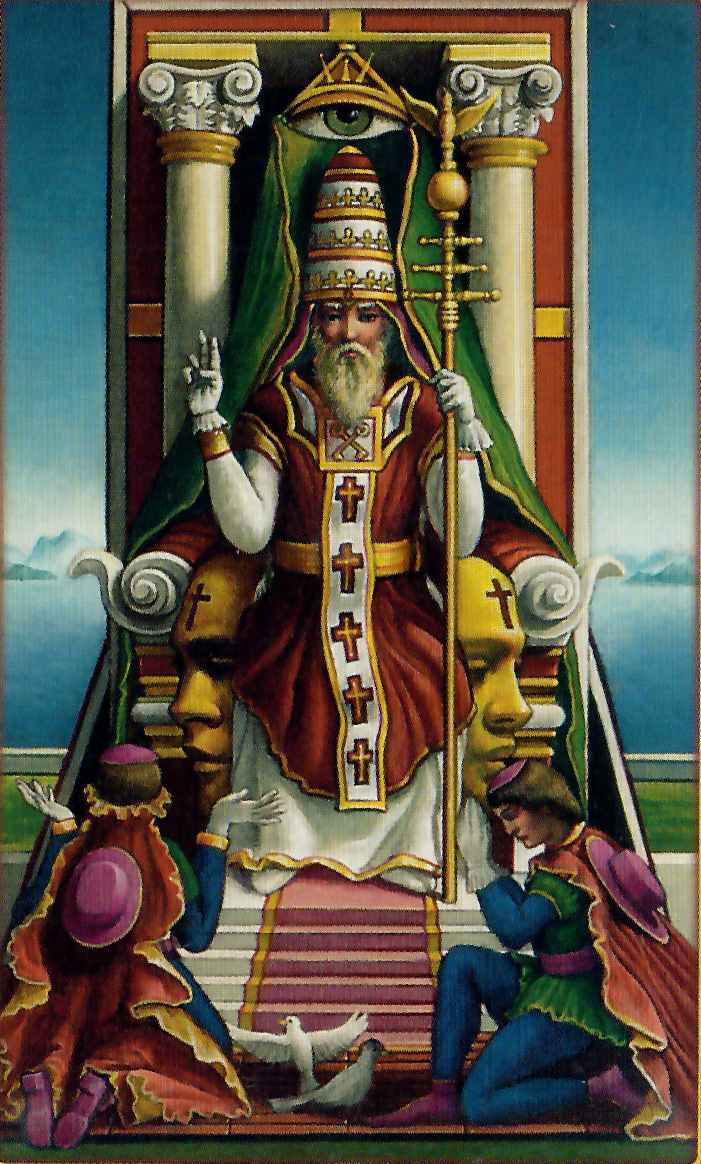
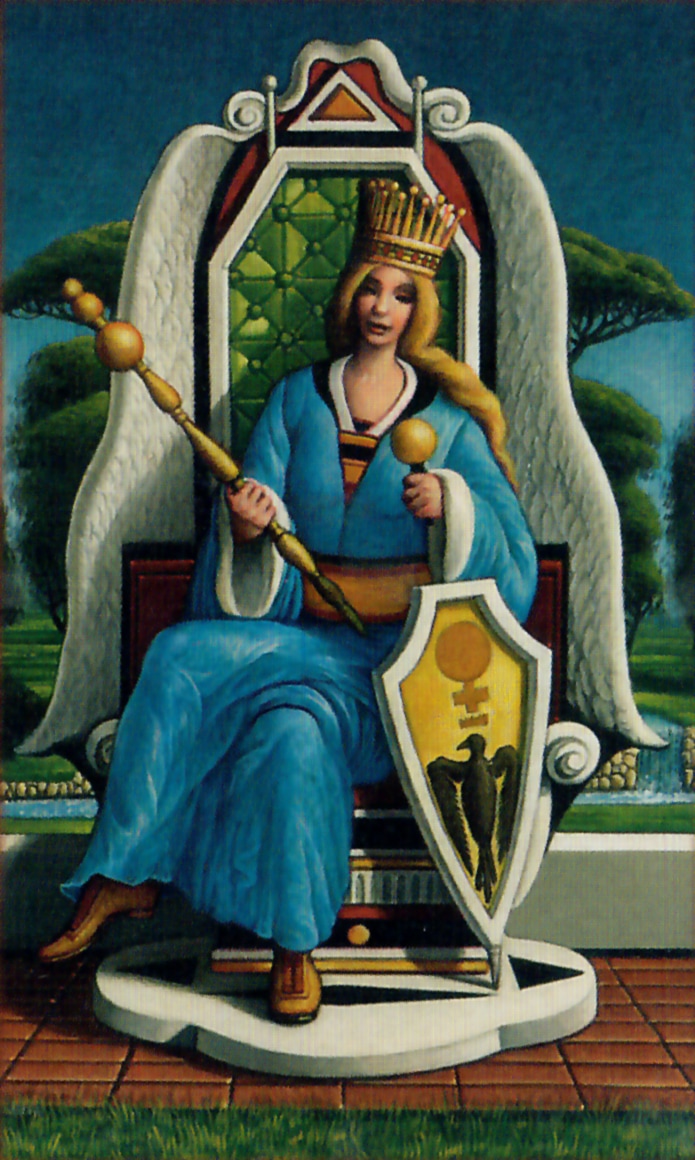
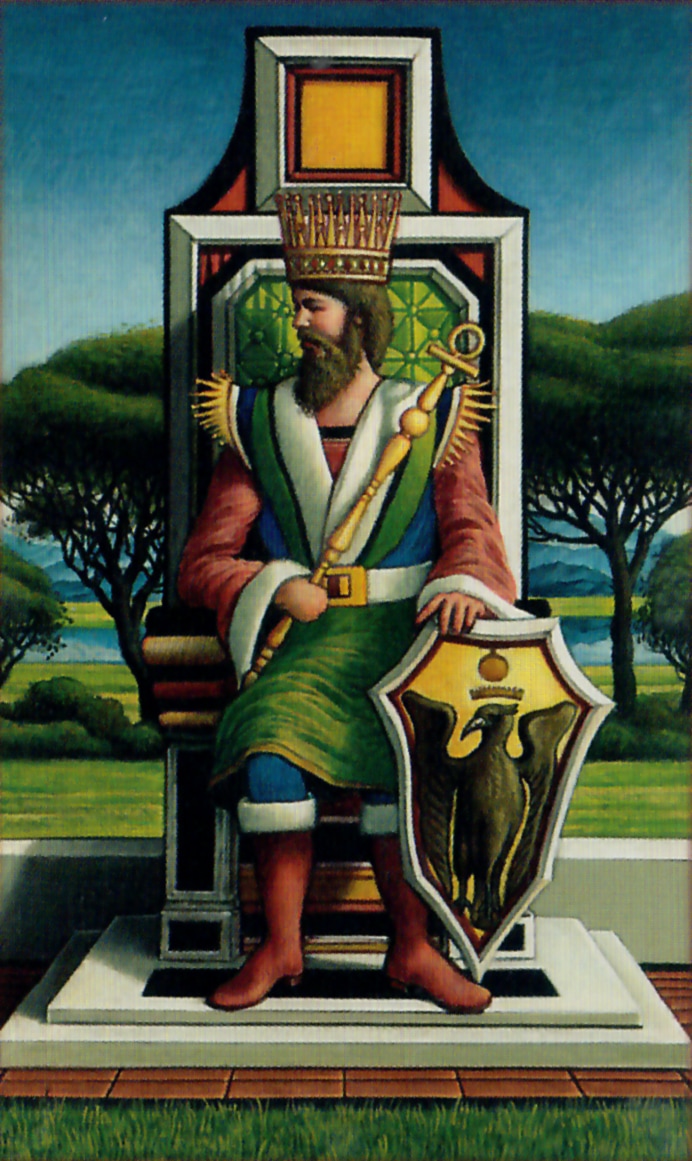
 RSS Feed
RSS Feed